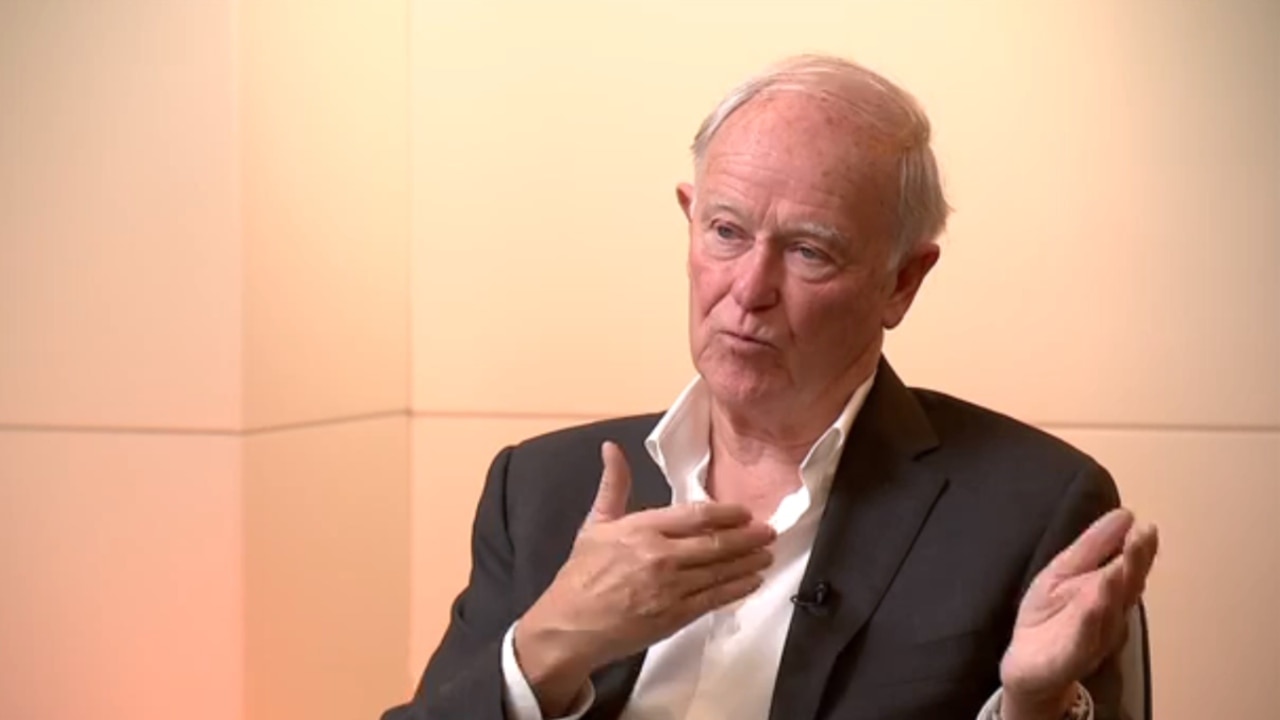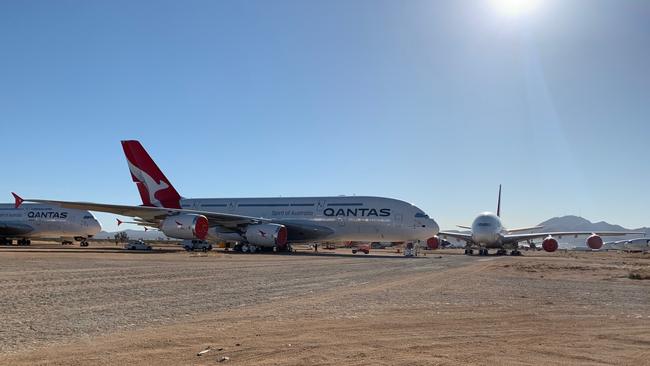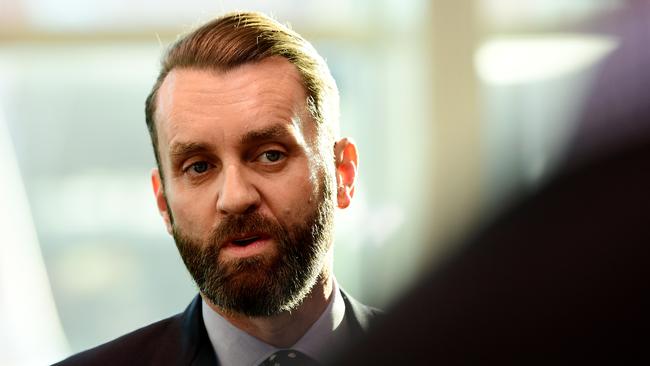Qantas teams up in global push to turn retired planes into new parts
The airline has teamed up with five other aviation players to turn its retired aircraft into parts for new planes amid plans to be net zero by 2050.

Qantas wants to turn materials from its retired aircraft into parts for new planes joining its fleet as it moves to accelerate supply chain decarbonisation amid plans to be net zero by 2050.
The Australian airline is among six aviation stakeholder groups from across the world that have launched the Aviation Circularity Consortium (ACC), an alliance of organisations looking to create value from the 8000 end-of-life retired aircraft housed in boneyards globally.
The pitch for a circular economy model in the aviation sector comes as the number of aircraft sent to boneyards is set to reach 11,000 in the next 10 years.
Qantas chief sustainability officer Andrew Parker said there is a lot of untapped potential in high-value materials from retired aircraft, with 90 per cent of an aircraft capable of being recycled and used in the manufacturing of new products,
“Decarbonising aviation and reducing the industry’s environmental footprint is a challenge that requires innovative solutions. As well as the significant commitments and investment towards reducing our emissions, we’re committed to sustainability across our entire operations and supply chain,” he said.
“There’s a lot of untapped potential in the high-value materials from retired aircraft that could be recycled and used to create parts in future Qantas aircraft cabins.”

The ACC says the Asian region makes up the largest share of aircraft, and will see a cumulative 102,500 tonnes of unused, end-of-life carbon fibre from aviation by 2050.
High-value materials like aluminium and carbon fibre, which make up the majority of aircraft components in the Airbus A350 and Boeing 787, will be increasingly sought after as demand for air travel grows and amid the broader green transition.
Qantas is due to introduce its first Airbus A350 in 2025 as part of Project Sunrise.
The consortium’s approach will be two-pronged with members working with original equipment manufacturers and regulators to develop a road map by late 2024 for the certification of reclaimed materials for use in aviation products and other industries.
The second stage will see Nandina REM lead engagement with financial institutions in the development of sustainability-linked financial products to support supply chain adoption of the road map.
The Singapore-based company launched industry-grade carbon fibre material reclaimed from end-of-life aircraft and reprocessed to aviation specifications at the Singapore Air Show in February, which chief executive Karina Cady said had seen strong early interest.
“Achieving this requires collaborative effort across industry stakeholders from all fronts – manufacturers, airlines, and regulators – to bring their unique expertise and resources to the table,” she said.
Australia’s national science agency, CSIRO, found the nation’s circularity rate – the measure of efficiency in which resources are reused and recycled within a system – is half the global average of 8 per cent.
It found that housing and transport make up half of Australia’s material footprint. Material use is the single largest determinant of energy use and emissions, responsible for more than 50 per cent of global warming, and therefore serves as a big lever to reduce emissions, according to the CSIRO.

Qantas has stepped up its green ambitions since the pandemic by signing deals to source sustainable aviation fuel from London and California in 2025. This is in addition to deals with Boeing and Airbus from 2028.
NSW last week revealed plans to contribute up $100m to start local production of SAF, which is considered the only realistic option for decarbonising air travel.
An alternative to conventional fossil-based aviation fuel, SAF can be made from renewable and sustainable feedstocks such as plant-based oils, agricultural residues, algae or organic waste materials.




To join the conversation, please log in. Don't have an account? Register
Join the conversation, you are commenting as Logout